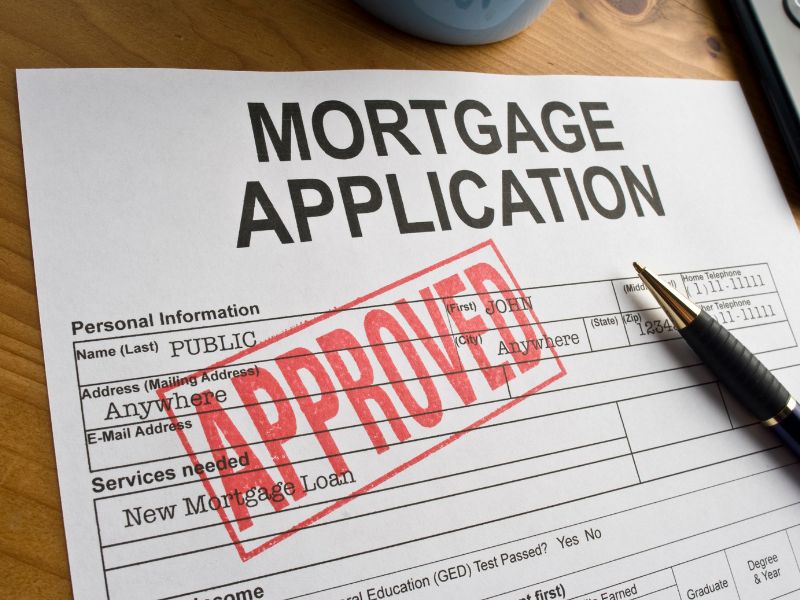The Impact of Rental Income on Mortgage Qualification
 For real estate investors and homeowners looking to purchase additional properties, rental income can play a crucial role in mortgage qualification. Lenders often consider this income when assessing a borrower’s ability to repay a loan, but the way it is calculated and applied varies based on different loan programs and underwriting guidelines. Understanding how rental income factors into mortgage approval can help buyers maximize their borrowing potential and secure favorable financing terms.
For real estate investors and homeowners looking to purchase additional properties, rental income can play a crucial role in mortgage qualification. Lenders often consider this income when assessing a borrower’s ability to repay a loan, but the way it is calculated and applied varies based on different loan programs and underwriting guidelines. Understanding how rental income factors into mortgage approval can help buyers maximize their borrowing potential and secure favorable financing terms.
How Lenders Assess Rental Income
Lenders typically evaluate rental income based on documentation such as lease agreements, tax returns, and property appraisals. The amount of income they recognize depends on the property’s occupancy status:
- Existing rental properties: If a borrower owns rental properties, lenders usually require two years of tax returns (Schedule E from IRS Form 1040) to determine average rental income. Depreciation and other expenses are typically added back to calculate the borrower’s effective income.
- New rental properties: If a borrower is purchasing an investment property or converting a current home into a rental, lenders may allow a portion of the projected rental income to offset the mortgage payment. This is often determined through a rent schedule (Fannie Mae Form 1007 or Freddie Mac Form 1000).
Rental Income and Debt-to-Income (DTI) Ratio
Debt-to-income ratio (DTI) is a key metric lenders use to assess affordability. Rental income helps lower a borrower’s DTI by either increasing total income or offsetting the mortgage payment. However, lenders typically apply a vacancy factor—usually 25%—to account for potential rental gaps, meaning they may only consider 75% of the rental income.
For example, if a property generates $2,000 in monthly rent, the lender may only count $1,500 toward the borrower’s income. This adjustment ensures that a borrower can manage expenses even during vacancies.
Loan Program Considerations
Different loan programs have varying requirements for rental income qualification:
- Conventional Loans: Fannie Mae and Freddie Mac allow rental income from leased properties and projected rental income with proper documentation.
- FHA Loans: The Federal Housing Administration permits rental income to qualify if the borrower has at least a two-year history of managing rental properties.
- VA Loans: The Department of Veterans Affairs allows rental income on multi-unit homes if the borrower occupies one of the units.
- DSCR Loans: Debt Service Coverage Ratio (DSCR) loans focus primarily on a property’s income rather than the borrower’s personal finances, making them a great option for investors.
Maximizing Rental Income for Mortgage Qualification
To improve mortgage eligibility using rental income, borrowers should:
- Keep detailed financial records, including lease agreements and tax returns.
- Ensure rental properties are well-maintained and occupied.
- Work with lenders who understand investment property financing.
- Consider loan programs that best fit their investment goals.
Rental income can be a powerful tool in mortgage qualification, but lenders apply specific guidelines to ensure financial stability. Understanding how it factors into loan approval can help borrowers make informed decisions and optimize their financing options.

 There are few things better than finding your dream home and being able to afford it, but simply because you’ve found the perfect place doesn’t mean you should stretch the truth. It might seem tempting to polish your mortgage application a little in the hopes of making a better impression, but here are a few reasons why you should stick to the truth when signing off on your home.
There are few things better than finding your dream home and being able to afford it, but simply because you’ve found the perfect place doesn’t mean you should stretch the truth. It might seem tempting to polish your mortgage application a little in the hopes of making a better impression, but here are a few reasons why you should stick to the truth when signing off on your home. Getting a mortgage can potentially help your credit score, as long as you make your payments on time and in full each month. Payment history is one of the most important factors that influence your credit score, so consistently making your mortgage payments on time can have a positive impact on your credit score over time.
Getting a mortgage can potentially help your credit score, as long as you make your payments on time and in full each month. Payment history is one of the most important factors that influence your credit score, so consistently making your mortgage payments on time can have a positive impact on your credit score over time.